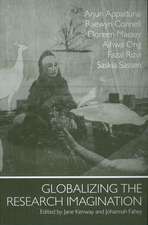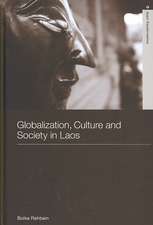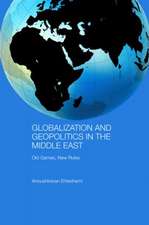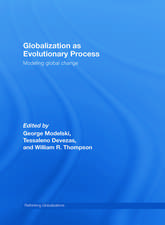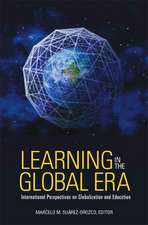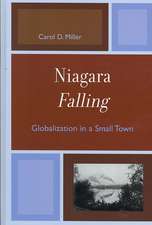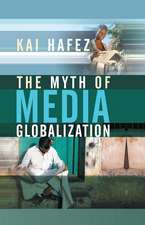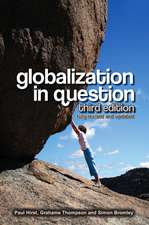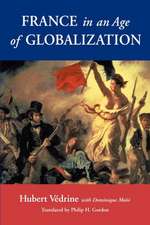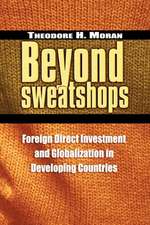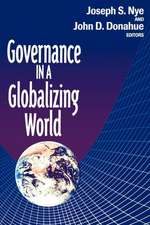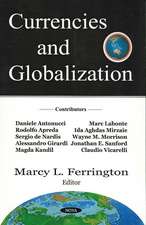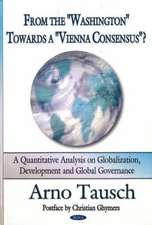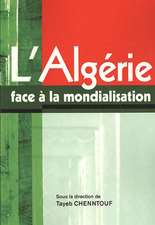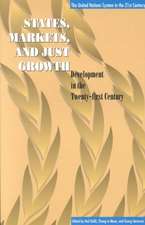Singapore: Smart City, Smart State
Autor Kent E. Calderen Limba Engleză Paperback – noi 2016
How Singapore’s solutions to common problems can provide examples for other societies.
Nearly everyone knows that Singapore has one of the most efficient governments and competitive, advanced economies in the world. But can this unique city–state of some 5.5 million residents also serve as a model for other advanced economies as well as for the emerging world? Respected East Asia expert Kent Calder provides clear answers to this intriguing question in his new, groundbreaking book that looks at how Singapore’s government has harnessed information technology, data, and a focus on innovative, adaptive governance to become a model smart city, smart state.
Calder describes Singapore as a laboratory for solutions to problems experienced by urban societies around the world. In particular, he shows how Singapore has dealt successfully with education, energy, environmental, housing, and transportation challenges; many of its solutions can be adapted in a wide range of other societies.
Calder also explains how Singapore offers lessons for how countries can adapt their economies to the contemporary demands of global commerce. Singapore consistently ranks at the top in world surveys measuring competitiveness, ease of doing business, protection of intellectual property, and absence of corruption.
The book offers concrete insights and a lucid appreciation of how Singapore's answers to near-universal problems can have a much broader relevance, even in very different societies.
Nearly everyone knows that Singapore has one of the most efficient governments and competitive, advanced economies in the world. But can this unique city–state of some 5.5 million residents also serve as a model for other advanced economies as well as for the emerging world? Respected East Asia expert Kent Calder provides clear answers to this intriguing question in his new, groundbreaking book that looks at how Singapore’s government has harnessed information technology, data, and a focus on innovative, adaptive governance to become a model smart city, smart state.
Calder describes Singapore as a laboratory for solutions to problems experienced by urban societies around the world. In particular, he shows how Singapore has dealt successfully with education, energy, environmental, housing, and transportation challenges; many of its solutions can be adapted in a wide range of other societies.
Calder also explains how Singapore offers lessons for how countries can adapt their economies to the contemporary demands of global commerce. Singapore consistently ranks at the top in world surveys measuring competitiveness, ease of doing business, protection of intellectual property, and absence of corruption.
The book offers concrete insights and a lucid appreciation of how Singapore's answers to near-universal problems can have a much broader relevance, even in very different societies.
Preț: 253.44 lei
Nou
Puncte Express: 380
Preț estimativ în valută:
48.51€ • 50.45$ • 40.65£
48.51€ • 50.45$ • 40.65£
Carte tipărită la comandă
Livrare economică 13-27 martie
Preluare comenzi: 021 569.72.76
Specificații
ISBN-13: 9780815729471
ISBN-10: 0815729472
Pagini: 256
Dimensiuni: 152 x 229 x 2 mm
Greutate: 0.41 kg
Editura: Brookings Institution Press
Colecția Brookings Institution Press
ISBN-10: 0815729472
Pagini: 256
Dimensiuni: 152 x 229 x 2 mm
Greutate: 0.41 kg
Editura: Brookings Institution Press
Colecția Brookings Institution Press
Notă biografică
Kent E. Calder is director of the Reischauer Center for East Asian Studies at the School for Advanced International Studies (SAIS) at Johns Hopkins University. Prior to assuming this position in 2003, he taught for twenty years at Princeton University, where he is an emeritus faculty member, while serving also as Special Adviser to the U.S. Ambassador to Japan (1997 2001); and Japan Chair at the Center for Strategic and International Studies (1989–93 and 1996). Calder has also taught at Harvard University, Seoul National University, and the University of Yangon. He is the author or coauthor of ten previous books on East Asian political economy.

